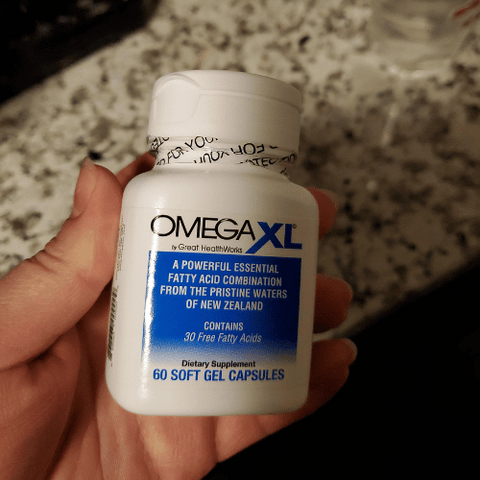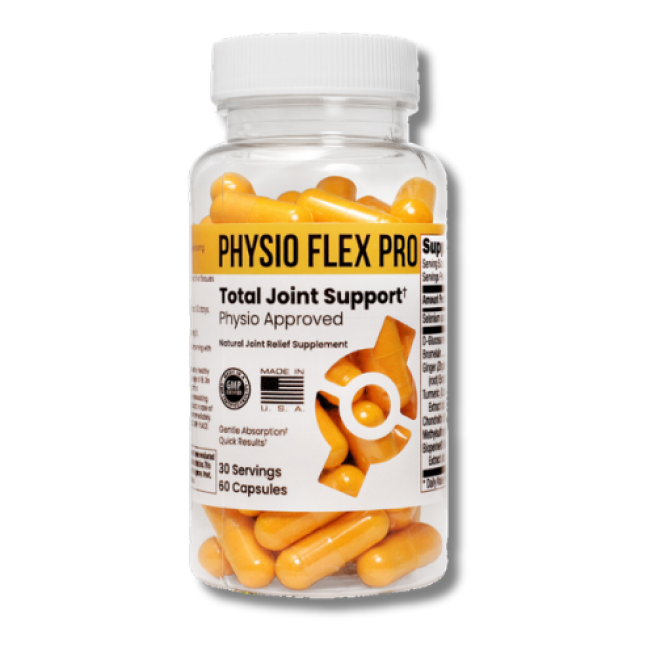You’ve probably heard of Omega XL, an oil-based nutritional supplement to improve joint health and reduce musculoskeletal problems. While it’s quite popular for its effectiveness claims and testimonials, the price point can be heavy on one’s budget.
If you’re looking for an Omega XL alternative that better suits your budget with the same or greater benefits, we’ve laid out some helpful options and tips to help you make an informed choice.
Understanding Omega XL

Composition and Benefits
Manufactured by Florida-based Great Healthworks group, Omega XL Joint and Muscle Support is touted as a powerful essential combination of omega-3 fatty acids and antioxidants that provide joint health support and post-exercise muscle recovery.
OmegaXL sources its omega-3 fatty acids from the New Zealand green-lipped mussel. It contains eicosapentaenoic acid (EPA), docosahexaenoic acid (DHA), and eicosatetraenoic acid (ETA). The latter acid belongs to the family of eicosanoids, which are synthesized from oxidized polyunsaturated fatty acids (PUFAs) and mediate cell-cell communication. Other ingredients, such as olive oil and Vitamin E, offer additional antioxidant support.
Potential Limitations and Side Effects
One of the more popular claims about Omega XL is that it’s 20 times more potent than fish oil. However, the brand does not explicitly mention the amounts of DHA, EPA, ETA, or any of its ingredients, which can leave room for more scrutiny of this claim. One third-party group claimed to have tested the product to examine its content and found that while it was clinically effective, it did not have enough EPA and DHA to back up its claim.
Results from trials and studies involving the use of Omega XL are mixed. One trial involving osteoarthritis patients found Omega XL to only have a minimal analgesic effect on joint pain. Only one study found the supplement a potential benefit for reducing post-exercise muscular pain. Overall, more intensive and quality research is still needed to fully establish its supposed benefits.
Regarding side effects, the product didn’t show any serious health effects. However, since it’s sourced from marine oil, occasional side effects like nausea, burping, and diarrhea may tend to occur. Those who have shellfish allergies can also suffer adverse effects when taken without the prior prescription or supervision from a healthcare provider.
Product Pros & Cons
Pros
- Uses clinically-proven ingredients
- No harmful additives
- Has wide renown
- Causes minimal side effects
- No fishy aftertaste
- Offers a 60-day money-back guarantee
Cons
- Third-party testing shows low omega-3 content
- Has a lower fish oil content compared to other leading omega-3 supplements
- More on the expensive side
Criteria for Selecting an Alternative to Omega XL
Essential Fatty Acids Profile
Omega-3 fatty acids (also called omega-3 fats and n-3 fats) are essential fats that have many important bodily functions, helping all the cells in your body function optimally, providing calories for energy, and influencing cell and tissue metabolism, function, and responsiveness to hormonal and other signals.
There are three types of omega-3 fatty acids sourced and used differently by the body variably:
- Eicosapentaenoic acid (EPA) – EPA is an omega-3 polyunsaturated fatty acid found in marine life like herring, salmon, cod, sardines, and krill. It can also be found in algae and human breast milk. Structurally, EPA is a carboxylic acid with a 20-carbon backbone chain and five double cis bonds, with the first double bond found at the third carbon from the omega end.
- Docosahexaenoic acid (DHA) – Docosahexaenoic acid is another omega-3 fatty acid mainly found in seafood like mackerel, sardine, herring, salmon, and caviar. It can also be found in algae, cod, meat, dairy, and pasteurized eggs. And like EPA, DHA is also a carboxylic acid, with a slightly longer composition of a 22-carbon chain and six double cis bonds at the omega end.
- Alpha-linolenic Acid (ALA) - Alpha-linolenic acid is an essential fatty acid sourced from plants — seeds, seed oils, and nuts like flax seed, walnuts, soybean oil, and rapeseed oil. Albeit a lesser-known fatty acid, it serves as a vegan/vegetarian source of omega-3s.
Purity and Source
Omega 3s are essential fats, which means the body can’t make them on its own but must get them from food sources, usually from:
- Seafood (E.g., salmon, mackerel, tuna, herring, sardines, krill, crab, and shrimp)
- Leafy vegetables (E.g., seaweed and algae, brussels sprouts, spinach, broccoli, etc.)
- Nuts (Walnuts)
- Seeds (E.g., flax pumpkin, sunflower, chia, etc.)
- Certain oils (E.g., flaxseed oil, olive oils
- Grass-fed meats (E.g., beef, buffalo, and lamb)
- Poultry (E.g., chicken and turkey)
Those following a vegan/vegetarian diet would naturally seek it from non-animal sources. Nuts, oil, and vegetables would then be part of their diet. Algae oil is notably rich in omega-3. Scientific research even considers it a greater and more sustainable source than fish oil since fish get their omega-3s from eating algae. At the same time, it’s more bioavailable and sustainable than fish oil since it is more environmentally friendly and ethical.
Top Alternatives to Omega XL
Plant-based Omega-3 Sources
Algae are considered the primary source of omega-3 fats, and all fish get their omega-3 content from it, making them only a secondary source, making the omega-3 oil sourced from algae more potent and bioavailable than fish oil-based supplements in the market, and is absorbed better by the body compared to fish oil or krill oil.
Studies also consider algae oil a potentially sustainable form of renewable fuel and a better alternative to fish oil since they are more environmentally friendly and ethical.
Flaxseed oil, as its name suggests, is sourced from flaxseeds. It contains 50 to 60% omega-3 fatty acids as alpha-linolenic acid (ALA). It helps reduce cancer cell growth, control cholesterol, and blood sugar levels, and treat digestive problems.
Omega XL vs. Biorixil
Biorixil shows a more detailed amount of its ingredients.
Compared to Omega XL, Biorixil has a higher EPA and DHA content at 150 mg and 300 mg, respectively, with an overall omega-3 blend amounting to 550 mg, in contrast with Omega XL, which only has 300 mg.
Physio Flex Pro
Physio Flex Pro may be considered better for joint health than Omega XL for several reasons, primarily due to its specific ingredients that are targeted towards joint support and repair. Here's a comparison to provide a clearer picture:
-
Targeted Ingredients for Joint Health: Physio Flex Pro typically contains a blend of ingredients like glucosamine, chondroitin, and MSM (Methylsulfonylmethane), which are specifically chosen for their roles in joint health. Glucosamine and chondroitin are components of normal cartilage and are used by the body to help maintain joint health and flexibility. MSM is believed to help reduce joint pain and inflammation and improve joint mobility.
-
Comprehensive Joint Support: The formulation of Physio Flex Pro is often more comprehensive in terms of addressing multiple aspects of joint health, such as cartilage repair, joint lubrication, and reduction of inflammation. This can make it more effective for people who suffer from joint-related issues like osteoarthritis.
-
Research and Evidence: There is substantial research supporting the use of glucosamine and chondroitin in the management of joint pain and osteoarthritis. The combination of these ingredients in Physio Flex Pro can offer a synergistic effect that might be more beneficial for joint health compared to the omega-3 fatty acids found in Omega XL.
On the other hand, Omega XL, being rich in Omega-3 fatty acids, is primarily known for its anti-inflammatory properties. While reducing inflammation can indeed help with joint pain and stiffness, Omega XL might not directly contribute to the repair or maintenance of joint structures like cartilage, which is where Physio Flex Pro may have an advantage.
Physio Flex Pro + Biorixil Bundle
Physio Flex Pro is available in a bundle with Biorixil. This would be the optimal Omega XL alternative as you would get the benefits from omega 3's as well as all of the proven ingredients in Physio Flex Pro.
Fish oil is sourced from fatty or oily seafood like trout, mackerel, tuna, herring, sardines, and salmon. They contain omega-3 fatty acids (also called omega-3 fats and n-3 fats), particularly eicosapentaenoic acid (EPA) and docosahexaenoic acid (DHA), which provide multiple health benefits.
Omega XL vs. OmegaWell
Compared to Omega XL, Live Conscious’ OmegaWell contains sustainably sourced, burpless fish oil and has 3x more oil (2000 mg) per serving. Each capsule contains pure concentrated EPA (800 mg) and DHA (600 mg) fatty acids that promote heart health, strengthen bones and joints, improve brain health, manage weight, resolve various skin issues, reduce heart disease risk, and help maintain cholesterol and blood pressure.
Krill Oil Supplements
Krill oil is an oceanic omega-3 powerhouse as it contains astaxanthin, a carotenoid antioxidant that protects cells from damage, strengthens the immune system, and provides other bodily benefits like healthier skin, endurance, heart health, and joint pain. Due to its shorter lifespan, it has less exposure to ocean toxins.
Krill contains both omega-3 fatty acids EPA and DHA, krill phospholipids, and astaxanthin — elements that help maximize benefits and promote better nutrient absorption in the body. The krill phospholipids bind to omega-3s to maximize efficient absorption, giving the joints additional support, pain relief, and better flexibility.
Omega XL vs. KrillMD™
KrillMD™ features pure, sustainable Antarctic krill oil, twice as potent as Omega XL’s green-lipped mussel. Krill phospholipids and astaxanthin help the body absorb nutrients better.
The astaxanthin component also helps reduce oxidative stress effects in the body and, when combined with EPA, helps maintain normal cholesterol levels, promoting heart health.
Scientific Evidence Supporting Alternatives
Clinical Studies on Fish Oil
Various studies show that omega-3 fatty acids found in fish oils help fight inflammation in the joints and help relieve rheumatoid arthritis symptoms such as joint stiffness, tenderness, and pain. Additionally, omega-3 contains anti-inflammatory properties that prevent damage inside the artery walls and reverse plaque buildup. Other studies also show that the anti-inflammatory properties of omega-3 found in fish oils can relieve menstrual pain.
One observational study found that people who regularly eat fatty fish rich in omega-3s have a better and stronger bone mineral density and a reduced risk of bone fracturing.
Research on Krill Oil Efficacy
Studies show that the antioxidant astaxanthin found in krill oil helps reduce the effects of oxidative stress on the body. When combined synergistically with EPA, they help maintain normal cholesterol levels, promoting heart health and cutting the risk of coronary heart disease.
Further research also shows that krill oil’s antioxidant properties help prevent cognitive decline, often a side effect of oxidative stress, within a year of supplementation and help sustain mental health, particularly for women suffering from pre-menstrual syndrome (PMS).
Plant-Based Omega-3s Research
Studies show that microalgae oils provide a source of n-3 LC-PUFA with a lower environmental impact and are produced using processes that compromise the oil’s quality and integrity. Several human trials have reported a significant increase in serum DHA after taking algae oil supplements and presented a decreased risk of cardiovascular conditions.
Experts also consider microalgae the best natural source of preformed omega-3 DHA over fish oil since it’s safer and more sustainable as a food ingredient and as a fuel source or medicinal component. According to some research, fish oil has been reported to occasionally contain contaminants like heavy metals and antibiotics, which can affect its integrity.
How to Choose the Right Alternative
Individual Health Considerations
Always remember your health needs/conditions when considering a supplement. You can opt for supplements that offer additional benefits that may target specific needs or conditions you may have. Check if they interact with any medications you might be taking.
Allergies and Sensitivities
Stay away from supplements with ingredients you may be allergic to. Omega-3 supplements sourced from shellfish can cause allergies, while ingredients may include other allergens like soy or artificial ingredients and fillers.
Always choose the supplement that has undergone strict quality processes and third-party testing to ensure the best quality and efficacy.
Price and Accessibility
Always check if the product price fits well into your budget – this will allow continuous supplementation and not affect your finances. Make sure the supplement of your choice is also readily available within your area or offers efficient shipping options.
FAQ Section
1. What specific health benefits can I expect from these Omega XL alternatives?
Based on our comparisons, our alternatives have a higher and more potent EPA and DHA content than what Omega XL contains and their omega-3 sources are much more potent and sustainable and have stronger scientific backing. These factors help ensure greater effectiveness.
2. How do plant-based omega-3 sources compare to marine sources in terms of effectiveness?
Plant-based omega-3 sources like algae oil are considered primary sources since marine sources get their omega-3 content from them. They’re also more bioavailable and serve as a more sustainable alternative.
3. Can these alternatives interact with other medications I'm taking?
Omega-3s can interact with blood thinning medications, corticosteroids, cholesterol-lowering medications, cyclosporine, and non-steroidal inflammatory drugs (NSAIDs). Ask your healthcare provider to help you time your supplementation to avoid interactions.
4. How quickly can I see results after switching to these alternatives?
Everyone has an individual response to medications/supplements, so seeing results may come in early or might take a while. However, it usually takes a month of consistent intake to fully experience results.
Conclusion
Overall, Omega XL is a highly reputable supplement with many stellar reviews. However, when set against other options based on sources and ingredient blends, we can safely conclude that our alternative supplements, such as OmegaWell and Biorixil, are more potent and offer greater promise in relieving joint-related health problems.
We also encourage you to consult your trusted healthcare provider for proper guidance on choosing the best supplement that fits your health needs and your budget.









